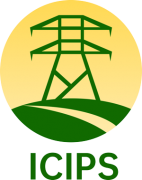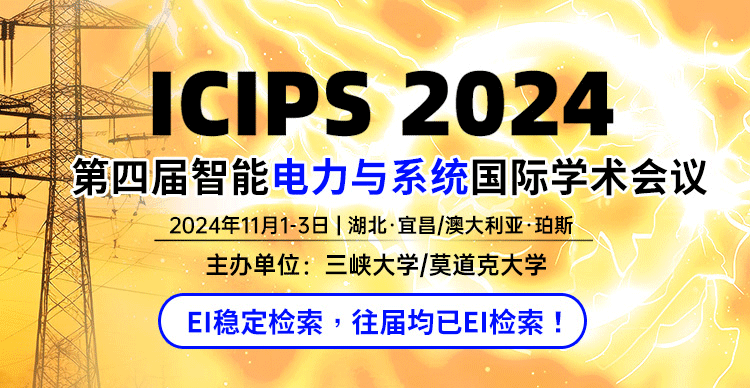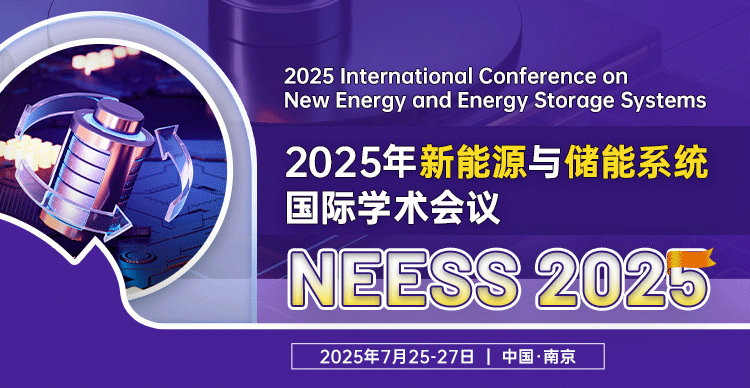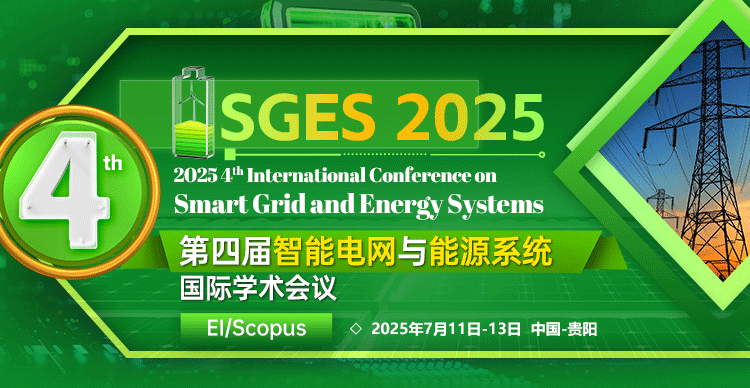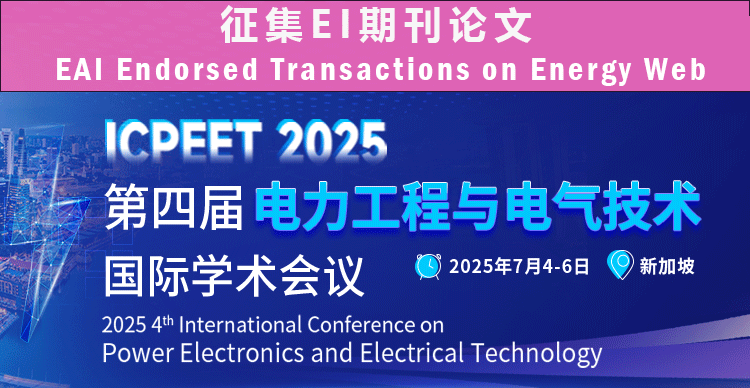第四届智能电力与系统国际学术会议
2024 4th International Conference on Intelligent Power and Systems
会议简介
第四届智能电力与系统国际学术会议(ICIPS 2024)将于2024年11月1-3日在湖北宜昌举行,会议将设置中国/澳洲双会场。中国会场由三峡大学主办,将在湖北宜昌举行;澳洲会场由莫道克大学举办,在澳大利亚珀斯召开。
(ICIPS 2024目前也已在同步申请IEEE出版支持,ICIPS 2023 在IEEE见刊并EI检索)
重磅嘉宾
黄悦华教授
三峡大学副校长
钟志勇教授
香港理工大学
IEEE Fellow
IEEE PES候任主席
王伟胜
中国电科院院士
郑方能
前科技部高新司司长
文福拴,教授
浙江大学
IEEE Fellow
澳洲会场/中国会场
Murdoch University Session of ICIPS 2024
90 South Street,Murdoch,Western Australia 6150
Hosted by: Murdoch University
Chair of Murdoch University Session:
Farhad Shahnia
A/Professor in Electrical Engineering
Murdoch University
ICIPS 2024中国会场:武汉宜昌
地点:武汉宜昌
主办单位:三峡大学
宜昌会场组织主席:
杨楠,教授
三峡大学电气与新能源学院
组委会
大会荣誉主席
薛禹胜,中国工程院院士
国网电力科学研究院名誉院长
大会主席
黄悦华,教授
三峡大学副校长
Mohammad Shahidehpour教授
伊利诺伊理工大学
IEEE Fellow, 美国工程院院士,H值139
钟志勇教授
香港理工大学
IEEE Fellow
IEEE PES候任主席
技术委员会主席
王成山,中国工程院院士
天津大学电气自动化与信息工程学院院长
吴磊,教授,美国斯蒂文斯理工学院
IEEE Fellow
出版主席
罗安,中国工程院院士
湖南大学
Antonio J. Conejo教授
The Ohio State University
IEEE Fellow
组织委员会主席
杨楠,教授,三峡大学
IEEE Senior Member
张磊, 教授,三峡大学
学术委员会主席
文福拴,教授,浙江大学
IEEE Fellow
陈树勇教授,国网经济技术研究院 特聘专家
IEEE PES能源与发电技术委员会秘书长
论文出版与检索
所有的投稿都必须经过 2-3 位组委会专家审稿,经过严格的审稿之后,最终所有被录用的稿件将在由IEEE出版的会议论文集,出版后提交IEEE Xplore收录,EI Compendex和Scopus检索。EI检索稳定,往届均已EI检索!
征文主题(包含但不限于)
电力电子
电子设备
电力电子封装和热管理
航空航天应用中的电力电子
电网弹性
智能电网执行器和传感器
发电、输电和配电
电力电子和驱动器
电子设备的效率、技术和可靠性
用于电源和能量收集的微型设备
纳米机电器件和系统
电力系统分析、建模、运行与控制
高压电力线优化技术
用于由可再生能源供电的智能电网的开关电容电力电子器件
电力系统
电力系统运行与管理
电力系统发电、输电和配电
电力系统状态监测
电力系统稳定性
电力系统状态估计
大型电力系统建模与仿真
灵活的交流输电系统
微电网和纳米电网
微电网的能源管理
建筑能源管理
电力电子与系统
电力系统网络安全
投稿说明
1、论文应必须为全英文非纯综述类文章;全文提交审核;
2、论文必须是原创,且从未在其他会议或出版物上发表过;
3、禁止一稿多投;禁止抄袭;
4、流程:投稿>审稿>录用>缴费注册>见刊>检索;
5、作者可通过CrossCheck, Turnitin或其他查询系统自费查重(全文查重包含参考文献),查重率不高于30%,否则由文章重复率引起的被拒稿将由作者自行承担责任。涉嫌抄袭的论文将不被出版,且公布在会议主页。
About ICIPS 2024
2024 4th International Conference on Intelligent Power and Systems
Welcome to the official website of the 2024 4th International Conference on Intelligent Power and Systems (ICIPS 2024)[第四届智能电力与系统国际学术会议] . ICIPS 2024 will be held during November 1-3 2024 in Yichang Hubei China.
The conference aims to provide a platform where academics and practitioners from cross disciplinary fields from power electronics and power system can come together and collaborate. The event will encourage the exploration of the potential synergies that may arise from pooling the different perspectives.
We invite you to submit papers on power electronics and power system. Poster and oral presentations and thesis presentations will be included to the Conference Program.
Important Dates
Full Paper Submission Date
September 4 2024
Final Paper Submission Date
September 30 2024
Registration Deadline
October 1 2024
Conference Dates
November 1-3 2024
Speakers
Prof. Hassan Bevrani
University of Kurdistan Iran(IEEE Fellow)
ti
Abstract: The term of Microgrid Control refers to the application of control theorems and relevant technologies for stabilizing and enhancing the performance of microgrids in real-world operations following various disturbances such as the loss of distribution of generators (DGs) and load units. This issue encompasses not only the internal control performance of microgrids and the connection/disconnection procedures to limit negative dynamic impacts on the power network but also grid support functionalities that enhance the overall operation of distribution networks.
Some of the most critical microgrid control issues include active and reactive power sharing synchronization methods voltage and frequency regulation services emergency control cybersecurity power control and energy management. Recent findings in confirm that the current well-known hierarchical 3-la
Prof. Jizhong Zhu
South China University of Technology China(IEEE Fellow)
ti
Abstract: A micro-energy network (MEN) integrates distributed energy systems multiple loads and control devices and helps to achieve the flexibility and economy of various energy networks operation through multi-energy co-generation and co-sourcing. However the uncertainties of loads and renewable energy generation bring out huge challenges for MENs. This paper establishes a two-stage robust optimal economic dispatch strategy for the MEN under grid-connected and is-landed operation modes. The topology of the MEN and the energy flow cou-pling relations are described ba
Prof. Buxiang Zhou
Sichuan University China
ti
Abstract: Wind and solar energy-ba
Prof. Yinquan Yu
East China jiaotong university China(IEEE Senior Member)
ti
Abstract:The PM motor structure has the advantages of high power density wide speed range and compact structure which are widely used in fields such as aviation aerospace home appliances and new energy vehicles. However due to its unique demagnetization fault it has not been widely adopted under some extreme working conditions such as traction motor for high-speed train. This report will explore the inherent mechanism of its unique demagnetization characteristics. At the same time to maintain electromagnetic torque while effectively reducing cogging torque and power consumption different optimization methods are explored to optimize the motor topology. Therefore it can effectively reduce the risk of demagnetization of magnets in motor due to extreme vibration level and high temperature rise.
Prof. Jianguo Zhu
University of Sydney Australia
ti
Abstract: Clean renewable distributed energy resources (DERs) such as wind and photovoltaic (PV) power generation are being installed worldwide to reduce the carbon emissions generated by fossil fuel power plants. Their intermittencies hinder their integration into the power grids. Various technologies such as energy storage systems (ESS) and microgrids (MGs) are developed for effective grid integration of DERs. However achieving a high percentage installation and grid integration of DERs remains a challenge primarily because of the low feed-in tariffs. To resolve the issue virtual power plants (VPPs) are introduced to aggregate and coordinate large numbers of DERs ESS and MGs. Recognising the potential business opportunity many power retailers have established centralised VPPs to increase DER installation and financial resilience. While these VPPs can provide adequate buffers to power price volatility (as demonstrated in the recent power price surge) and improve the distribution network resilience the centralised coordination fails to provide sufficient incentives to attract the enthusiastic participation of DER ESS and microgrid owners. This talk presents our vision and recent studies of VPPs for high percentage integration of DERs in smart grids including machine-learning-ba
Call For Papers
The topics of interest include but are not limited to:
Power Electronics
· Electronic Devices
· Power Electronics Packaging and Thermal Management
· Power electronics in Aerospace Applications
· Grid Resilience
· Actuators and Sensors for Smart Grids
· Power Generation Transmission and Distribution
· Power Electronics and Drives
· Efficiency Technology and Reliability of Electronic Devices
· Micro Devices for Power and Energy Harvesting
· Nanoelectromechanical Devices and Systems
· Power System Analysis Modeling Operation and Control
· High Voltage Power Line Optimization Technologies
· Switched-capacitor power electronics for smart grids supplied by renewable energy
Power System
· Power System Operation and Management
· Power System Generation Transmission and Distribution
· Power System Condition Monitoring
· Power System Stability
· Power System State Estimation
· Large Power System Modeling and Simulation
· Flexible AC Transmission Systems
· Microgrids and Nanogrids
· Energy Management for Microgrids
· Building Energy Management
· Power Electronics and Systems
· Power System Cyber Security
Publication
All papers will be reviewed by two or three expert reviewers from the conference committees. After a careful reviewing process all accepted papers will be published in the Conference Proceedings and submitted to EI Compendex Scopus for indexing.
Note: All submitted articles should report original results experimental or theoretical not previously published or being under consideration for publication elsewhere. Articles submitted to the conference should meet these criteria. We firmly believe that ethical conduct is the most essential virtue of any academic. Hence any act of plagiarism or other misconduct is totally unacceptable and cannot be tolerated.

